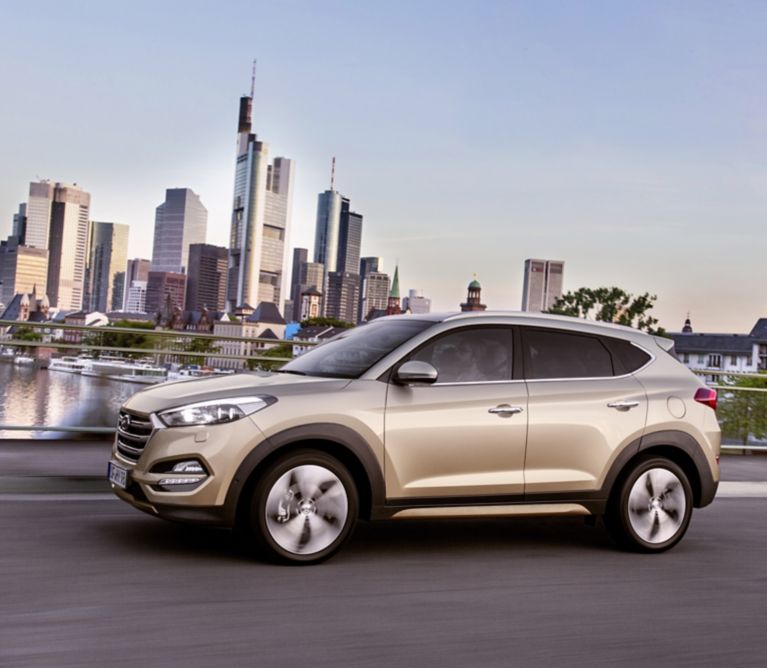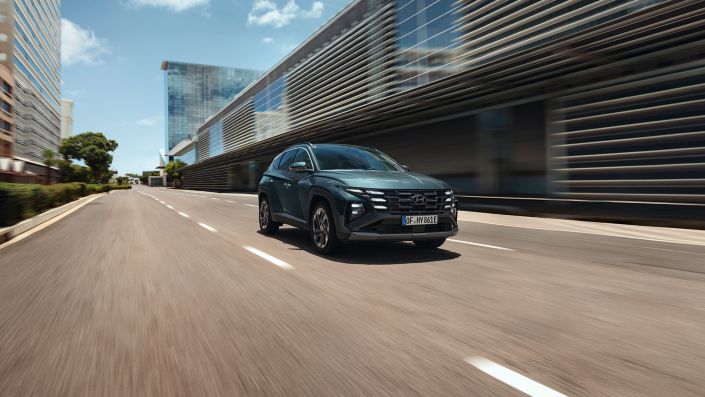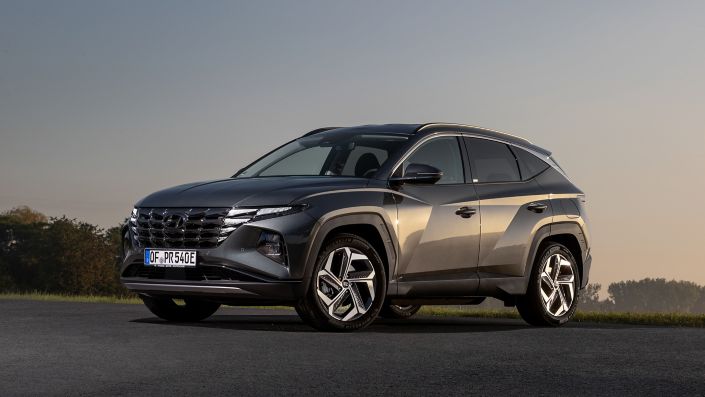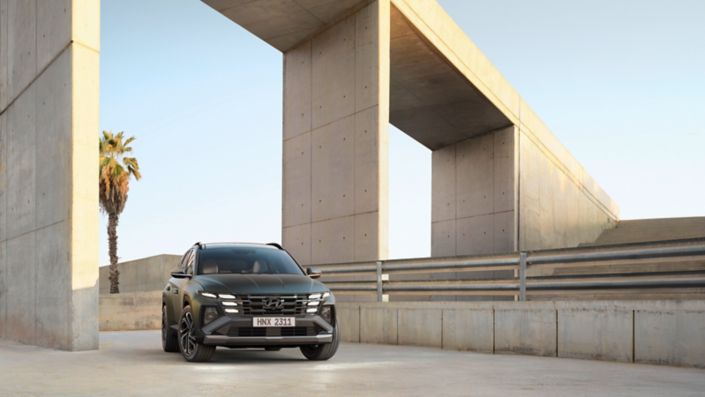- Hyundai achieves 49,555 new car registrations in September, up 9.8% on 2014
- Strong start for All-New Tucson, the brand’s bold new compact SUV
- Company takes 3.6% market share in September; 3.3% year-to-date
Press material
-
Download
-
Images
Strong demand for the All-New Tucson SUV contributed to Hyundai Motor’s robust performance during the month of September.
The company achieved a market share of 3.6 % last month, with registrations of 49,555 cars in Europe, according to new data from industry organisation ACEA. For the year-to-date, the company maintains its market share of 3.3 %, based on 355,423 registrations of new cars during the first nine months of 2015.
Launched to European customers during September, the All-New Tucson has made an instantly-positive impression in a highly-competitive segment. Among other achievements, it was the top-selling SUV in Germany, according to the Kraftfahrt-Bundesamt (KBA), and Hyundai’s best-selling car in September. 61,000 orders have already been placed, making it Europe’s fastest-selling new Hyundai model ever.
Launched to European customers during September, the All-New Tucson has made an instantly-positive impression in a highly-competitive segment. Among other achievements, it was the top-selling SUV in Germany, according to the Kraftfahrt-Bundesamt (KBA), and Hyundai’s best-selling car in September. 61,000 orders have already been placed, making it Europe’s fastest-selling new Hyundai model ever.
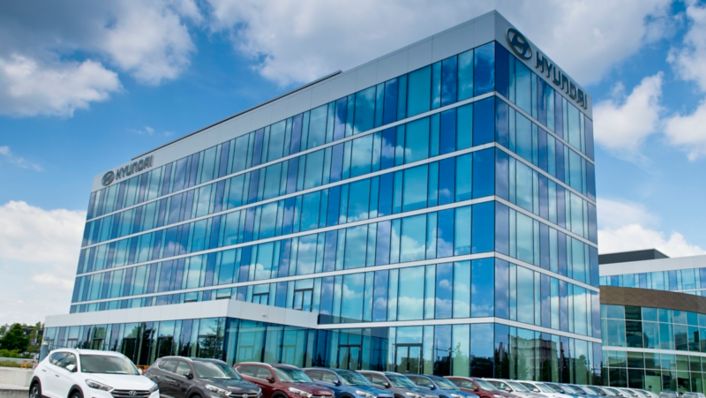
Also performing well was the Hyundai i20, which will receive a further boost this year when the lifestyle crossover, New i20 Active, enters production in November. Also arriving next month is the new 1.0-litre T-GDI engine – a compact three-cylinder turbocharged petrol engine, available with 100 PS (Fuel consumption combined: 4.6 - 4.0 l/100 km; urban: 5.8 - 5.0 l/100 km; extra-urban: 3.9 - 3.4 l/100 km; CO2 emissions combined: 107 - 94 g/km) and 120 PS (Fuel consumption combined: 5.0 - 4.6 l/100 km; urban: 6.3 - 5.8 l/100 km; extra-urban: 4.2 - 3.9 l/100 km; CO2 emissions combined: 115 - 107 g/km).
The new unit combines increased driver enjoyment with low running costs and low fuel consumption.
The new unit combines increased driver enjoyment with low running costs and low fuel consumption.
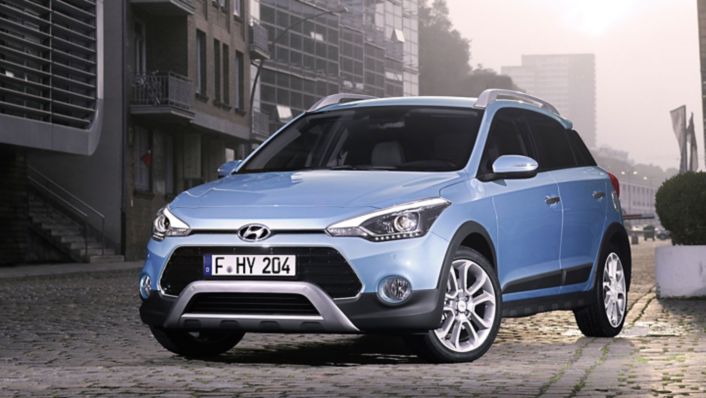
As the European market continues to grow, we are keeping pace thanks to high customer demand for our widening range of new cars. The fantastic response to the All-New Tucson demonstrates the appeal of Hyundai cars to European buyers.
Like most new Hyundai cars, All-New Tucson has been designed and developed in Europe for Europe. It is produced at the company’s manufacturing facility in the Czech Republic – the heart of Hyundai production in the region.
Consumption Data Tucson*
Gasoline Engines
1.6 GDi (132 PS): Fuel consumption combined: 6.3 l/100 km; urban: 7.9 l/100 km; extra-urban: 5.4 l/100 km; CO2 emissions combined: 147 g/km
1.6 GDi (177 PS): Fuel consumption combined: 7.6 - 7.1 l/100 km; urban: 10.0 - 9.0 l/100 km; extra-urban: 6.5 - 5.8 l/100 km; CO2
Diesel Engines
1.7 CRDi (116 PS): Fuel consumption combined: 4.6 l/100 km; urban: 5.4 l/100 km; extra-urban: 4.1 l/100 km; CO2 emissions combined: 119 g/km
1.7 CRDi (141 PS): Fuel consumption combined: 4.9 l/100 km; urban: 5.4 l/100 km; extra-urban: 4.7 l/100 km; CO2 emissions combined: 129 g/km
2.0 CRDi (136 PS): Fuel consumption combined: 6.0 - 4.8 l/100 km; urban: 7.0 - 5.6 l/100 km; extra-urban: 5.3 - 4.4 l/100 km; CO2 emissions combined: 156 - 127 g/km
2.0 CRDi (185 PS): Fuel consumption combined: 6.5 - 5.9 l/100 km; urban: 8.0 - 7.1 l/100 km; extra-urban: 5.6 - 5.2 l/100 km; CO2 emissions combined: 170 - 154 g/km
Consumption Data i20*
Gasoline Engines
1.25 MPI (75 PS): Fuel consumption combined: 5.1 - 4.7 l/100 km; urban: 6.6 - 5.8 l/100 km; extra-urban: 4.2 - 4.0 l/100 km; CO2 emissions combined: 119 - 109 g/km
1.25 MPI (84 PS): Fuel consumption combined: 5.1 - 4.7 l/100 km; urban: 6.6 - 5.8 l/100 km; extra-urban: 4.2 - 4.0 l/100 km; CO2 emissions combined: 119 - 109 g/km
1.4 MPI (100 PS): Fuel consumption combined: 6.4 - 6.2 l/100 km; urban: 8.5 - 8.2 l/100 km; extra-urban: 5.1 - 4.8 l/100 km; CO2 emissions combined: 148 - 143 g/km
1.0 T-GDi (100 PS): Fuel consumption combined: 4.6 - 4.0 l/100 km; urban: 5.8 - 5.0 l/100 km; extra-urban: 3.9 - 3.4 l/100 km; CO2 emissions combined: 107 - 94 g/km
1.0 T-GDi (120 PS): Fuel consumption combined: 5.0 - 4.6 l/100 km; urban: 6.3 - 5.8 l/100 km; extra-urban: 4.2 - 3.9 l/100 km; CO2 emissions combined: 115 - 107 g/km
Diesel Engines
1.1 CRDi (75 PS): Fuel consumption combined: 4.0 - 3.2 l/100 km; urban: 4.9 - 3.4 l/100 km; extra-urban: 3.4 - 3.0 l/100 km; CO2 emissions combined: 103 - 83 g/km
1.4 CRDi (90 PS): Fuel consumption combined: 4.1 - 3.7 l/100 km; urban: 4.9 - 4.5 l/100 km; extra-urban: 3.5 - 3.3 l/100 km; CO2 emissions combined: 106 - 97 g/km
Consumption Data i20 Active*
Gasoline Engines
1.4 MPI (100 PS): Fuel consumption combined: 6.7 – 5.3 l/100 km; urban: 9.0 – 7.2 l/100 km; extra-urban: 5.4 – 4.6 l/100 km; CO2 emissions combined: 133 – 128 g/km
1.0 T-GDi (100 PS): Fuel consumption combined: 4.9 – 4.5 l/100 km; urban: 6.2 – 5.5 l/100 km; extra-urban: 4.2 – 3.9 l/100 km; CO2 emissions combined: 107 - 94 g/km
1.0 T-GDi (120 PS): Fuel consumption combined: 5.2 – 5.1 l/100 km; urban: 6.6 – 6.2 l/100 km; extra-urban: 4.5 – 4.4 l/100 km; CO2
Diesel Engines
1.4 CRDi (90 PS): Fuel consumption combined: 4.3 – 4.2 l/100 km; urban: 5.3 – 5.2 l/100 km; extra-urban: 3.8 – 3.6 l/100 km; CO2 emissions combined: 115 - 110 g/km
*Depending on trim and tire specifications.

